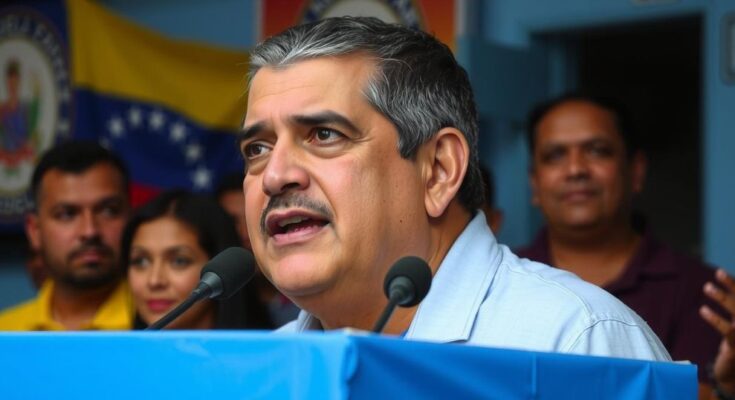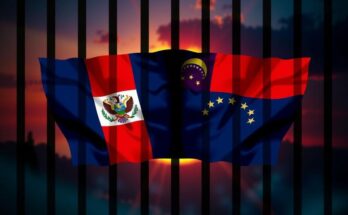Venezuela will hold local elections on December 15, 2024, to select 30,000 communal peace judges. These elections aim to strengthen grassroots democracy, allowing citizens aged 15 and above to vote for local judges from a candidate pool of 52,288. This initiative is endorsed by President Nicolás Maduro, who emphasizes a transformative approach to direct democracy and community engagement in governance.
On December 15, 2024, Venezuela will conduct local elections for the selection of 30,000 “communal peace judges” aimed at fostering grassroots democracy. The election will unfold across over 4,000 communal circuits, inclusive of 481 indigenous communities. Venezuelans, aged 15 and older, will vote for peace judges from a candidate pool of 52,288. Each communal circuit will elect two or three judges and their substitutes. Voter engagement is encouraged, with President Nicolás Maduro stating that the elections represent a significant move toward a visionary democracy rooted in participation and community values.
During a recent assembly in the 23 de Enero neighborhood, President Maduro emphasized the importance of directing power to the community and advancing a model of direct democracy. In conjunction with leaders such as Minister of Communes Ángel Prado and National Assembly President Jorge Rodríguez, Maduro characterized the popular election of peace judges as a vital step towards realizing a model of democracy that transcends traditional frameworks.
Angel Prado praised the local elections as crucial for progressing away from bourgeois democracy models. Local leader Robert Longa expressed that this initiative forms part of an ongoing effort to empower citizens, akin to the traditional Soviet councils that played a significant role in shaping revolutionary governance. Peace judges are tasked with mediating local disputes and fostering peaceful relations among community members, with the mandate to approach community and familial issues without escalating matters to formal courts.
The role of peace judges, recently redefined by the Organic Law of Communal Peace Justice, permits them to handle a vast array of local disputes while enforcing boundaries on their jurisdiction, specifically regarding property disputes exceeding 1,000 euros. The system aims to establish a collaborative approach where community representatives embody the needs and aspirations of their constituents.
Candidates for the positions undertook community campaigns from December 4 to 13, focusing on local conflict resolution, ensuring they possessed key qualifications, including residence and reputation standards. This election follows several community consultations in which citizens selected local projects funded by the government, indicating an evolving structure of local governance that values direct participation.
Venezuela’s local elections for communal peace judges are indicative of a larger trend toward grassroots democracy in the country. The initiative aims to empower communities by allowing them to elect local authorities in a bid to enhance communal governance and mediate conflicts within neighborhoods. These reforms are rooted in Venezuela’s ongoing political changes and a desire to reshape societal structures towards participatory democracy, moving beyond conventional political representations to encourage direct engagement from the populace.
In conclusion, Venezuela’s upcoming local elections for communal peace judges mark a significant development in the pursuit of grassroots democracy. The initiative is designed to empower local communities, enabling citizens to govern and resolve disputes related to their immediate environments. These reforms reflect broader efforts to enhance participatory governance, moving away from traditional democratic structures to a model that prioritizes local input and community involvement in public life.
Original Source: venezuelanalysis.com




